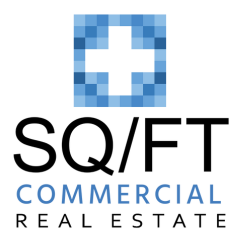
Whether starting a new practice or relocating an existing one, finding the right location is vital. It’s an exciting endeavor that requires meticulous consideration and the right team of experts. Choosing the appropriate place for your practice is akin to selecting the perfect house: It must feel right, be convenient, and, most importantly, attract and impress patients. This guide will walk you through the easy steps to locate the ideal location for your practice.
Why Location Matters
Before exploring the nitty-gritty details, let’s understand why location is paramount:
Visibility and Accessibility:
While accessibility is key for all patients, the importance of visibility depends on the type of practice you have. For instance, prominent, high traffic exposure will have significant value for general dentistry, veterinary and certain types of medical practices whereas specialists, widely relying on referrals may find the added cost of high visibility spaces to be less important.
Demographics:
Demographic analysis should be conducted prior to looking at any sites. Understanding the demographic makeup of an area and ensuring that it’s closely matched with your target patient base should be one of the first steps taken before looking at properties.
Competition:
Determine the extent of competitiveness in the area. Are there a lot of comparable enterprises, or is there a market space you can fill?
Steps to Choose The Right Location for Your Practice
So, how do you pick the perfect spot? Here’s a simple guide to help you make the right choice
Understand Your Practice Needs:
First, you must determine your practice needs. For instance, if you’re seeking dental practices for sale in New Jersey or New York or space to start a practice from scratch, consider variables such as the size of the space, proximity to your target patient base, and visibility and accessibility to your patients. It will help you narrow the options, facilitating your search!
Define Your Target Patient Base:
Identify and evaluate your intended patient base. Explore their demographics, tastes, and requirements. Understanding your patient base can assist you in determining the optimal location.
Conduct Market Research:
Analyze the New York and New Jersey markets to assess demand for your services. Look for trends, places with a scarcity of medical offices or dentistry practices, and areas with a high growth potential.
Determine Your Budget:
Budgeting for your practice can be extensive. Practice-specific lenders, practice consultants and other practice owners are excellent resources to help budget for your new practice. Things to consider are real estate costs whether rent or mortgage payments, taxes, insurance, working capital, construction and equipment costs as well as having enough working capital to get things running for the first year.
Competitive Analysis:
Competitive analysis is key. Understand your potential competitors and don’t get too focused on competition ratios alone. Just because there are other practices in the market, they may be focused on a different patient demographic, offer fewer options for advanced treatment options or be close to the end of their careers. For those ‘competitors’ nearing the end of their careers, this may be advantageous to an incoming practice as you may be able to acquire your competitors in the coming years.
Evaluate Accessibility:
Ascertain that the site is convenient for both customers and staff. Explore the accessibility of main highways, transportation options, and parking availability.
Check Zoning Regulations:
Investigate local zoning regulations and restrictions to ensure that your practice may legally function in your chosen location. This step is especially pertinent for medical and dental practices looking into New Jersey medical offices for sale. Ensuring that your selected premises are correctly zoned for your type of practice will prevent potential legal issues down the line.
Negotiate Lease Terms:
Commercial leases are far more complex and are less regulated than leasing an apartment or home. Landlords will present leases that are most favorable to them. When it comes to negotiating and understanding commercial leases, rely on the advice from your real estate broker to ensure the business terms are fair and comparable to the market, but also ensure an attorney well-versed in commercial leases advises you of any potential legal pitfalls. Skipping attorney review to save hundreds of dollars can cost you many thousands if you sign a bad lease.
Visit the Location:
Visit potential sites in person with your broker, contractor and designer. Explore the neighborhood, converse with the locals to get an inside scoop on the area, and consider whether it’s compatible with your company’s culture, values and growth strategy. It’s imperative to have firsthand experience to make an informed decision.
Future Growth Potential:
Weigh the location’s long-term viability to your practice. Will your practice be able to expand if needed? Avoid becoming stuck in a place that will impair future growth.
Get Professional Advice:
Seek assistance from a real estate agent or practice consultant who is well-versed with the New Jersey market and has extensive accesses to available medical office or dentistry spaces for sale or lease. They can offer significant insights and advice.
Conclusion
Choosing the ideal location for your practice shouldn’t be made haphazardly, as it can significantly influence your practice success! Meticulously analyze the decisive factors like target audience, expenses, competition, and accessibility to make an informed decision! With these steps, you’ll be well on your way to finding the perfect home for your practice in no time.
